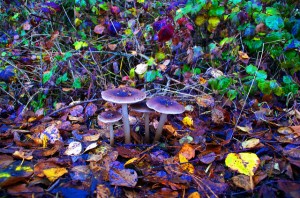FRIDAY, 20 MAY 2016
Depression is a large problem around the world, and is estimated to cost the UK £7.5 billion per year. Therefore, it is especially urgent to find ways to help the 20% of people suffering from depression who do not find relief in established treatments. Among these are cognitive behavioural therapy and drugs that increase the levels of the signalling molecule serotonin in the brain. Researchers from the University of Cambridge have now performed a first-time pilot study to test psilocybin as a potential treatment for these patients. Psilocybin is naturally produced by over 200 species of mushrooms.
Psilocybin is naturally produced by over 200 species of mushrooms.This study, published in Lancet Psychiatry, is only a first step towards exploring psilocybin as a treatment for depression, since it had only few participants, who furthermore were fully aware that they were receiving an active compound. There was also no control group receiving a placebo to whom the observed effects could be compared. However, the researchers showed that is in principle safe and feasible to administer psilocybin to patients, and this opens up the way for more in-depth studies, giving hope to people who desperately need it.
DOI: http://dx.doi.org/10.1016/S2215-0366(16)30065-7
Image by Frerk Meyer CC BY-SA 2.0
Written by Janina Ander
